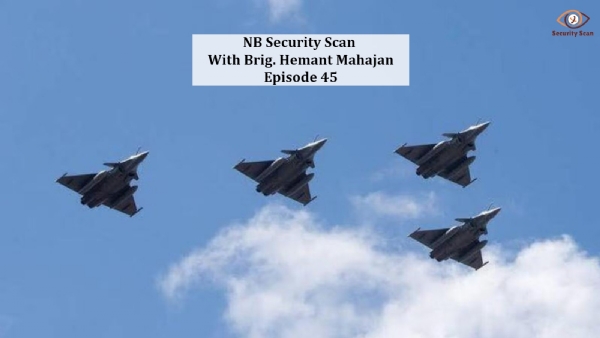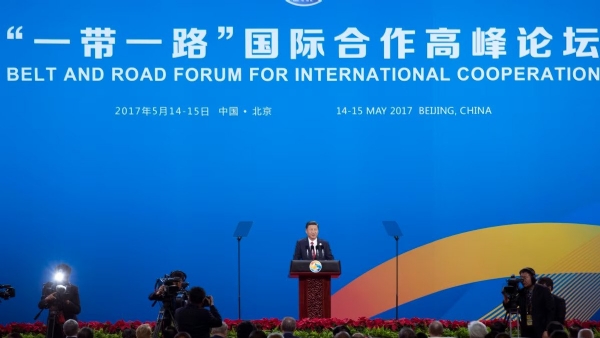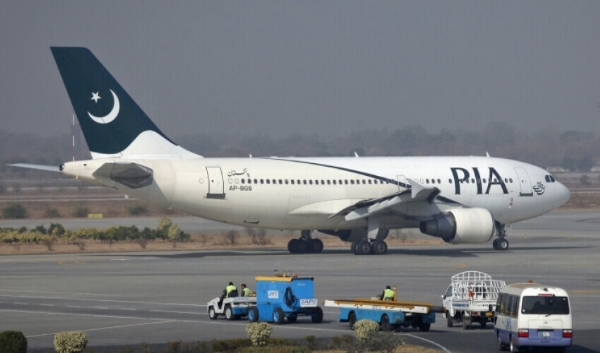#SecurityScan 45: Philippines' soft diplomacy in South China Sea & more
As per the US-based magazine, The Washington Post"s op-ed writers on national security are mostly in agreement on the importance of challenging and confronting China.
Total Views |
This article is a summary of important events that have taken place in last one week affecting, India's national security.
News In Brief
India & US close to mega defence deal: Pact for fighter jet engines 1st, ship engines likely next
Transfer of Technology (ToT) for jet engines was the main thrust of National Security Advisor Ajit Doval's talks with his American counterpart Jack Sullivan.

CBI books arms dealer Sudhir Choudhrie, Rolls Royce over HAL deal — ‘£1.85mn bribe, missing papers’
The CBI has alleged that former Rolls Royce India director Tim Jones, Choudhrie, and others conspired to deceive the Indian govt in procurement of Hawk aircraft during the UPA era.
"India's potential to check China's power has never been greater...", says report"
As per the US-based magazine, The Washington Post's op-ed writers on national security are mostly in agreement on the importance of challenging and confronting China. Writers such as David Ignatius, Marc Thiessen, favour greater defence spending and Indo-Pacific deployments to deal with the problem of China.
US Defense Secretary Lloyd Austin to travel to India ahead of Modi's US visit
Austin will visit India to meet with Defense Minister Rajnath Singh and other leaders as the United States and India continue to modernise the US-India Major Defense Partnership, announcing the defense secretary's trip to Japan, Singapore, India and France next week.
Indian Army, IAF conduct joint exercise along western borders
"The exercise was carried out in realistic tactical settings and showcased the speed, agility and lethality of the paratroopers to induct into a hostile environment, secure dropping zones, and engage the enemy with surprise, precision and speed. "A high level of operational preparedness and synergy was displayed between Western Command, strategic forces and the Indian Air Force to undertake integrated operations in an obstacle-ridden terrain.
Nation will not forgive or forget attacks on 'memorials of martyrs': Pak Army chief
"I want to convey this message to the heirs of the martyrs of all law enforcement agencies that today the people of Pakistan and the Pakistan Army stand and will continue to stand with them. Earlier, a ceremony was also held at the General Headquarters in Rawalpindi where Gen Munir and his predecessor, retired General Qamar Javed Bajwa, were in attendance.
PLA deployment not increasing: Gen Anil Chauhan
"They haven't gone back. So, there is a challenge actually," he added. "The armed forces are taking all kinds of steps so that there is no untoward situation...We have been able to get back to all places except two: Demchok and Depsang. Negotiations are on," he said.
Challenges in Manipur will take some time to settle: CDS Anil Chauhan
Major army training exercise along Western borders
The Indian Army carried out a major training exercise in Punjab this month by various units and formations of Ambala-based Kharga Corps.
Controversy in Nepal
Nepal army's plans to procure 26 armoured personnel carriers (APCs) from China's North Industries Group Corporation Limited (Norinco), a state-owned company that has been blacklisted by the United States and was allegedly involved in supplying arms to insurgents in the northeast in the past.
India stands enabled not just for deterrence, but also for robust response: Army Chief Manoj Pande
Gen Manoj Pande said, "Today the nation is at the cusp of transformational changes, we are witness to the growing stature of our country in the international environment and higher expectations from the world community. Our concurrent growth and development, and the rising aspirations of our people, all reflect the confident optimism of a rising nation."
China to join Indonesia's multilateral naval drills despite rising tension
China's navy is sending a destroyer and a frigate to participate in Indonesia's 2023 Multilateral Naval Exercise Komodo (MNEK), which will run from June 4 to 8 off the coast of Makassar. The event will also host North Korea, Russia, South Korea, and the United States. China and the US are escalating military diplomacy in the region by organising frequent war games with allies and partners around Taiwan, the South China Sea, and the west Pacific.
Rafale jets carry out long-range mission in Indian Ocean Region
The Indian Air Force carried out the mission at a time China has been ramping up its presence in the Indian Ocean region.
Three terrorists arrested as Army foils infiltration bid along LoC in J-K's Poonch
"In a joint operation by Army along with police, three terrorists were intercepted on LoC in Poonch sector while attempting to cross the fence on the night of May 30 and 31, taking advantage of bad weather and heavy rains.
US military complains of unsafe, aggressive move by Chinese fighter jet
The Chinese J-16 fighter pilot "flew directly in front of the nose of the RC-135," which was conducting routine operations in international airspace last Friday, U.S. Indo-Pacific Command said. It called the Chinese move an " unnecessarily aggressive maneuver."
Drones attack Russian oil refineries near major oil port
At around 0100 GMT a drone struck the Afipsky oil refinery in Russia's Krasnodar region, causing a fire which was later extinguished, Governor Veniamin Kondratyev said.
Countering Chinese Multi domain War
Aggressive Behaviour From Nations Does Not Bode Well For Beijing
The Lithuanians do not want Chinese smartphones. The Canadians expelled a Chinese diplomat. The Swiss want to romance Taipei. The Italians want to ditch the Belt and Road Initiative.

Across the globe, nations are unsheathing their swords against China. They are standing up to Beijing, decoupling or – as the new catchphrase goes – de-risking to ensure their future is not reliant on being in China’s good graces.
This aggressive behaviour from nations does not bode well for Beijing. Across the globe, governments are willing to take steps against the world’s second-largest economy that they dared not take against Washington. Does the world view China differently? Does China have gravitas in the eyes of other nations? Is China a serious power?
In less than one week, Canada reversed decades of friendly foreign policy towards Beijing.
It’s not just the expelling of a Chinese diplomat, or Canada shrugging off warnings that China will retaliate economically, or the “list” Ottawa is reportedly creating of foreign laboratories and universities that Canadian institutions cannot work with, a move seen as targeted at China.
With Spratly Islands cruises for tourists, Philippines uses ‘soft diplomacy’ to advance its South China Sea territorial claims
Tourism’s use as an economic or soft power weapon is not new. Just ask South Korea, which saw Chinese arrivals plummet amid a dispute with BeijingThe launch in the Philippines of cruises for tourists to three of the disputed Spratly Islands the country controls is a fresh exertion of ‘soft diplomacy’.
Strategic Kaleidoscope between India and China-Remain nimble footed to counter Chinese multi domain war
Doubts had been raised in India about how important world powers would react if India hosted an international conference in Jammu and Kashmir. The answers to such queries were provided recently. India deliberately chose Srinagar to host G20 members who were focusing attention on the promotion of tourism. Srinagar is widely accepted as a tourist haven. Pakistan made all-out efforts to dissuade countries from attending the meeting. China predictably skipped the meeting and was joined by some Islamic countries — Saudi Arabia, Egypt, Indonesia and Turkiye.
Indonesia and Saudi Arabia were, however, represented at the Srinagar meeting by their diplomats. Turkiye has been an ardent supporter of Pakistan for decades. It has chosen to remain less than friendly with India.
Just over a week earlier, the National Security Advisers (NSAs) of India (Ajit Doval) and the US (Jake Sullivan) met in Saudi Arabia along with the Crown Prince of Saudi Arabia Mohammed bin Salman and Sheikh Tahnoon bin Zayed al Nahyan, the NSA of the UAE.
The US-India exchanges with the UAE and Saudi Arabia will hopefully enhance security, stability and cooperation across India’s oil-rich western neighbourhood. The understanding promoted by the US-India interaction with two oil-rich Arab states should now be carefully integrated with work in the U2I2 grouping comprising the US, the UAE, India and Israel. Stability and peace in a region where an estimated 8.1 million Indians reside, out of whom 3.4 million are based in the UAE, is of importance to India.
Amidst these developments, the major security challenge that India has to face across its land and maritime frontiers arises from the continuing hostility of the Xi Jinping government. The conflict in Ladakh commenced in 2020 when China seemed determined to move back to its unilaterally announced 1959 claim line. Beijing did not sufficiently succeed in this effort in the face of strong Indian resistance.
India has responded strongly by resisting Chinese efforts to seize territories in Arunachal Pradesh in the Tawang area. China’s aim is clearly to keep Indian troops deployed in difficult terrain and ice-cold weather in Ladakh and Arunachal Pradesh. China will soon realise that ‘salami slicing’ of small bits of Indian territory is not going to impact India’s growing relations with the US, Russia and Japan. Nor are they going to influence India’s determination to foster economic and defence ties through groupings such as the Quad and I2U2 across the Indo-Pacific region.
While Bhutan and India are linked by long-standing treaty commitments, China is now seeking to make inroads into Bhutan by negotiating a border agreement. Bhutan, with its long-term economic, cultural and spiritual links, is, however, sensitive to India’s concerns as it proceeds with its talks with China.
China’s G20 Srinagar game plan was hollow. PoK to Taiwan to Tibet, India can turn the table
Turkey, Egypt, Saudi Arabia, and Indonesia will soon realise the drawbacks of aligning with China by boycotting G20 Srinagar meet.
China remains engrossed in its long-term programme for strategic containment of India. This is a reality that India has to recognise and be prepared for a long haul. India’s response to this long-term reality of challenges that China poses has been gradually picking up momentum. This has involved maintaining good relations with Russia, despite western reservations.
India is set to face the difficult task of ensuring that differences with China and rivalries between Russia and China on the one hand, and the US and its European allies on the other, do not hamper the success of the G20 Summit it is hosting later this year.
Pakistan A Failed State
Malaysia Seizes Pakistan Airlines Jet for Unpaid Dues, Leaving Passengers Stranded
A Boeing Co. 777 jet operated by Pakistan International Airlines Corp. was impounded on May 29 in Kuala Lumpur over unpaid charges to a leasing company, forcing the carrier to send a replacement aircraft to pick up stranded passengers.

A Malaysian court ordered the plane to be seized on the lessor’s request, PIA spokesman Abdullah Hafeez Khan said in a statement.
Internal Security
Kashmir sees ‘drastic fall’ in terror recruitment after Army launches de-radicalization drive
Operation Sahi Raasta was started last year in Pattan in Baramulla district and is now being expanded to Anantnag.
Terror recruitment in Kashmir has seen a drastic fall this year, with the first five months seeing only seven youngsters joining terrorist groups. In 2022, saw 121 youngsters joining terror groups.This number was 142 in 2021, which was lower than 178 in 2020.
The Indian Army and the Jammu & Kashmir Police had together launched an operation called ‘Sahi Raasta’.Under the programme, radicalised youth or those getting radicalised are put through a 21-day capsule at a specialised centre, where they undergo counselling from a religious point of view as well as on career, besides other things.
The programme was started last year at Pattan in Baramulla district, and now another centre is being opened up in Anantnag, about 180 youngsters, in the 15-30 age group, had undergone the counselling.
“It is heartening to note that only one boy from the 180 that had undergone the programme joined terror ranks. That boy too came back within a week.
The families were reaching out to the Army when they felt that their children were getting radicalised.
Informal de-radicalisation programmes have been run in the past but this is the first time that it is being done in a structured manner, but discreetly.
A focused crackdown on terror infrastructure and finances by the National Investigation Agency (NIA) and J&K’s State Investigation Agency also played a key role in keeping terror recruitment down.
Security Children and Women
Operation AAHT-59 children rescued from human traffickers on Bihar-Pune train'
59 children rescued from human traffickers on Bihar-Pune train'.Five persons were arrested on the charge of human trafficking, These children were rescued from Danapur-Pune Special express train at Bhusawal and Manmad, in Jalgaon and Nashik districts, in Maharashtra, were being taken to Madasas without any documents or permission from their parents. To combat human trafficking, the Railway Protection Force (RPF) has initiated Operation AAHT. It will primarily target trains that originate in border states. The Ministry of Railways oversees the operation.
RPF special forces would be deployed in long-distance trains as part of the operation. The major goal of the operation will be to save women and children from human traffickers.
Human trafficking is an organized crime that involves the exchange of people for forced labour, sexual slavery, or commercial sexual exploitation for the trafficker or others, forced marriage, domestic servitude, organ transplantation, drug peddling, and so on
Each year, the National Crime Records Bureau records approximately 2,200 occurrences of human trafficking
Article 23 of the Indian Constitution makes it illegal to traffic in human beings or persons (1). In India, human trafficking is essentially a criminal offence under the Indian Penal Code.
External Security
Will take ties to Himalayan heights: PM Modi to Nepalese PM
Efforts to enhance energy and connectivity ties dominated the agenda of PM Narendra Modi’s meeting Thursday with his visiting Nepal counterpart PK Dahal Prachanda that saw the two countries sign seven agreements and launch six projects, including inauguration of new railway services. Among the highlights of the summit meeting was a revised transit agreement that will allow Nepal access to India’s inland waterways for the first time. India also acceded to Nepal’s proposal to export power to Bangladesh through Indian territory, while announcing it will ramp up its own power import from Nepal to 10,000 MW in the next 10 years. Nepal currently exports 450 MW to India.
The agreement and projects encompass areas like rail connectivity, power, petroleum pipeline and cross-border financial payments. The PM also said that he and Prachanda agreed projects related to Ramayana circuit should be expedited to strengthen religious and cultural links between the two countries. Prachanda sought non-reciprocal market access to India with more flexible and easy quarantine procedures for Nepal’s agricultural products and simplified Rules of Origin for other products.
Nepal PM Prachanda’s visit to India is important. This is his first foreign visit since he took Nepal’s top job December. Prachanda had made Beijing his first port of call after becoming PM for the first time in 2008. Between then and now, the India-China-Nepal equation has changed radically. On the economic front, India must expedite all pending projects in Nepal and stick to a needs-based development model.
Economic Security
The US debt ceiling deal spares the world of a shock
Following the passage of a bill by the US House of Representatives, the debt ceiling of the American government has been suspended, averting a disruption in global financial markets. This allows the US to continue borrowing beyond June 5, when its cash balance was projected to run out. However, there are still procedural steps to be completed for the bill to take effect, including clearance by the US Senate and the president's signature.

The implications of the debt ceiling negotiations extend beyond the United States and impact countries like India, given the significance of the US debt market and currency in the global financial system. The majority of the world's foreign reserves, approximately 58%, are held in US dollars, followed by the Euro with a share of around 20%. These reserves are invested in US securities, some of which serve as benchmarks for safe assets. The potential default on interest payments poses an unknown risk, considering the significant investments made by other nations in US debt instruments.
Uncertainty in financial markets typically leads to increased interest rates, negatively impacting economic activity. Currently, there are no viable alternatives to the US, as China, the world's second-largest economy, lacks sufficient trust. In the absence of alternatives, it becomes necessary for India to adapt to the United States economic crisis.
India needs to diversify its Soft Loans For Faster Growth
The New Development Bank(NDB), established by BRICS member states to finance infrastructure and sustainable development projects, already has three non-member states: Bangladesh, the United Arab Emirates, and Egypt.
As far as India’s Line of Credit (LOC) projects are concerned, the country borrows from international financial agencies and subsidises the interest component while advancing the loan to recipients. India will have to explore the possibility of linking all such LOC projects, project exports and even private sector projects to NDB funding. The NDB’s estimated exposure in China’s BRI projects is to the tune of $1.261 billion.
Again, approximately one third of the Asian Infrastructure Investment Bank (AIIB) loans are funding China’s BRI projects as AIIB was specifically established to support the BRI. Incidentally, though India is not part of any of the BRI projects, it supports the AIIB. China owns 30 percent of voting shares and veto powers, which has approved 147 projects in India totalling $28.9 billion. This includes $3 billion currency swaps, loan deferments and line of credit to Colombo, and $15.8 million grant to Maldives for the construction of radar systems. India’s share of financial assistance and alternative projects to immediate and distant neighbours will increase substantially if we are able to find low interest finance partners.
While India should strategise to increase its infrastructure development projects in the neighbourhood, it should utilise the NDB route for funding and gradually delink its own projects from AIIB. Also, unlike in the case of AIIB, it is important to keep any one country from holding major shareholding in NDB and possess veto power.
Although the share of G7 in global GDP on PPP base was far greater compared to that of the BRICS countries, post-pandemic, the BRICS seems to have made a jump. While the share of GDP of G7 nations based on PPP reduced from 50.42% of the world’s GDP in 1982 to 30.39% in 2022, the share of GDP of BRICS nations increased from 10.66% in 1982 to 31.59% in 2022.
The share of India’s GDP in world’s GDP increased from 2.98% in 1982 to 7.21% in 2022.
As one of the fastest growing economies not only among the BRICS countries but also among G20 nations, India has a substantial role to play and manage its economy more seriously and responsibly. India has a pivotal role to play in this regional group which, like South South Cooperation, may surpass regional boundaries and emerge as a global financial agency with greater geopolitical clout.
--



